Course info 2019
- Syllabus
- CCLIP 2019 – Schedule
- CCLIP 2019 – Welcome Letter
- CCLIP 2019 – Literature Overview and Course Reader
- CCLIP 2019 – Examination Overview
Welcome to Climate Change Leadership in Practice 2019
What would a climate change leadership in practice look in different contexts and places in the world? How can you as a student initiate and lead processes that mitigates emissions and adapts societies to a changing climate?
The course starts with an intense first part in Uppsala where specially invited guest teachers and the Zennström visiting professor in Climate Change Leadership at Uppsala University, combined with interactive workshops, gives you a background on the complexity of the issues as well as inspiration for what you can work on during the course. The ideas and experiences you bring to the course are also very important in the process. During the end of this intensive start-up you choose, individually or in a group, a practical thematic area you want to work on, in Uppsala, Sweden or internationally. The main part of the course focuses on the actual work with your chosen area combined reports back ‘home’ and discussions with other students, teachers and coordinators at CEMUS (in Uppsala and online). The course ends with a creative summary of the work you have done, communicated mid-December in Uppsala.
The question that was the starting point for developing the course was – what could around 20 students working full time on climate change achieve with their total of 800 hours per student per semester do? That is almost the equivalent of one person working around the clock for two years (667 days and nights in total to be exact). I strongly encourage you to study and work hard during the semester, to make good use of the time, to be open to new ideas, use your imagination, and have fun.
We have worked hard to create the best course possible, and it will hopefully open up new understandings and new methods of working on the issues. In the words of the first visiting professor in climate change leadership, Doreen Stabinsky, this is very much: “… a space to think and dream differently”.
Guy Finkill and Isabel Baudish
Course Coordinators
Take the chance and devote a full semester to learning more about climate change leadership and work for a better world!
Course info 2018
Syllabus & course info
Assignments
- See each week for assignments
- Grading Criteria CEMUS
Archive 2016-2017
- 2017 – see further down on this page
- 2016
Schedule
First four weeks – UPDATED 2018-09-15 at 11:48
Overview schedule for the full semester can be downloaded here: Semester & examination schedule (posted 2018-07-30)
Literature
Articles, other material and one elective book (connected to your work after the first four weeks) is also part of the required reading.
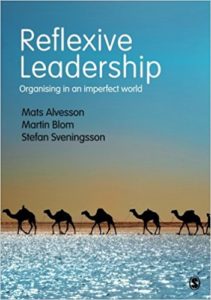
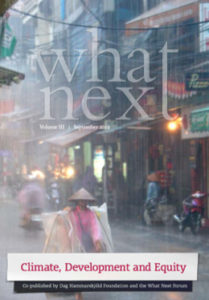
Available online: www.whatnext.org
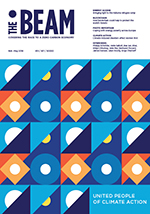
AVAILABLE AT DISCOUNT AT THE START OF THE COURSE
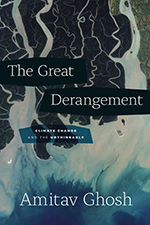
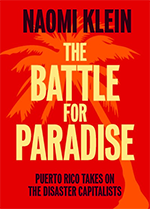
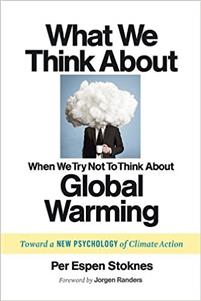
Examination
Reading instructions, articles, text, video, audio and resources
Week 5-15 online resources and material posted (final update Tuesday October 16 at 10.37)
The material can be found here: http://www.cemus.uu.se/cclip2018-week-5-15
Week 3 online resources and material posted (final update Saturday Sep 15 at 15.24)
The material can be found here: http://www.cemus.uu.se/cclip2018-week-3
Week 2 online resources and material posted
The material can be found here: http://www.cemus.uu.se/cclip2018-week-2

More info about the Friday Stockholm climate event
We leave Uppsala with the 10.48-train, we’ll have the presentations concluded before then. The group that stays in Uppsala will continue the seminar discussion in Kollaboratoriet, and the rest of us will discuss on the way to Stockholm and the event.
Where: Nytorget 4 (Urban Deli)
When: Sep 7 at 11.30-14.00
How: Free concert, bring your own lunch or buy lunch there
Event: https://backagreta.confetti.events/
Facebook: https://www.facebook.com/events/315962402498619/
Pressmeddelande: https://mailchi.mp/e1d925603b6b/pop-up-konsert-fr-klimatet-med-magnus-carlson-patrik-isaksson-helen-sjholm
Open lectures, seminars and events – electives as part of the course
- Sep 3, 18-20 – Intro lecture with Anders Wijkman, Humanistiska teatern.
- Sep 6, 13.15-15.00, “Fiscal policies for gender equality: empirical evidences” Lekha Chakraborty, Centre for Gender Research, Botanical Garden, Villavägen 6.
- Sep 8, all day, Kulturnatten/Culture Night, Uppsala.
- Sep 16, 15.00-16.30, “Feminist City Tour”, start at Geijer-statue outside University Main Building, at Biskopsgatan 3.
- Sep 17, 14.00-16.00, “Norm Critical Pedagogy” Aisha Lundgren Aslla, University Main Building sal IX (nine), Click here to register.
- Sep 18, 18.30-20.30, “Den forskande aktivisten – Samverkan, aktivism och forskningens integritet” Folke Tersman, Humanistiska teatern. In Swedish.
- Sep 27, 17-19 – Tomas Kuhmunen from the Sami parliament, room 12010, Blåsenhus.
- Oct 3, 15-17 – “Klimatvrede”-event, Sigtunastiftelsen. Registrera dig här, in Swedish.
- Oct 10, 13-15 – “Ojämlikhetens geografi” with Po Tidholm, Hambergsalen, Geocentrum. In Swedish.
- oct 16, 18.30-20.30, “Jag delar inte din åsikt, men är beredd att dö för din rätt att uttrycka den. Eller? – Om den politiska toleransens nödvändighet för demokratin” Sten Widmalm, Humanistiska teatern. In Swedish.
- Oct 23, 15.00-17.00, “Seeing: The Problem” Ruth Wilson Gilmore, Ihresalen, English Park Campus.
- Nov 1, 15-17 – Shora Esmailian. In Swedish.
- Nov 20, 18.30-20.30, “Folkets opium eller demokratisk resurs? – Om religion, stat och politik” Elena Namli, Humanistiska teatern.
- Dec 5, 17-19.30 – “Making the Transition: An Introduction to the Transition Town Movement” Rob Hopkins (Skype), Hörsal 2 Ekonomikum.
- Dec 10, 17-20 – “Finding the Sweet Spot: An Introduction to Doughnut Economics” Kate Raworth (Skype), Hörsal 2.
- Dec 13, 17-19 – Alan AtKisson on Sweden and Agenda 2030.
Welcome to Climate Change Leadership in Practice autumn 2018!
Welcome to an intensive and creative full-time semester at CEMUS! We have planned a course that combines traditional academic studies on climate change and leadership, with creative, practical work on climate change. As the quotes above point to, there is so much work that is needed, but these efforts needs to be informed and be part of an ongoing critical discussion of what is actually working, and what is not, in different contexts and places.
The course starts with an intense four weeks in Uppsala where specially invited guest teachers (including the Zennström visiting professors in Climate Change Leadership) gives you a background on the complexity of the issues as well as inspiration for what you can work on during the course. The ideas and experiences you bring to the course are also very important in the process. During the end of this intensive start-up you choose, individually or in a group, a practical thematic area you want to work on, in Uppsala, Sweden or internationally. The main part of the course focuses on the actual work with your chosen area combined reports back ‘home’ and discussions with other students, teachers and coordinators at CEMUS (in Uppsala and online). The course ends with a creative summary of the work you have done, communicated at CEMUS Winter Sustainability Week mid-December in Uppsala.
The question that was the starting point for developing the course was – what could around 20 students working full time on climate change achieve with their total of 800 hours per student per semester do? That is almost the equivalent of one person working around the clock for two years (667 days and nights in total to be exact). I strongly encourage you to study and work hard during the semester, to make good use of the time, to be open to new ideas, use your imagination, and have fun.
We have worked hard to create the best course possible, and it will hopefully open up new understandings and new methods of working on the issues. In the words of the first visiting professor in climate change leadership, Doreen Stabinsky, this is very much: “… a space to think and dream differently”.
Daniel Mossberg
Course Coordinator CCLIP and Director of Studies CEMUS
Course info 2017
Syllabus & course info
Assignments
Archive
Schedule
Literature
Three elective books that you suggest connected to your work after the first three weeks is also part of the required reading.


Available online: www.whatnext.org

Available online Uppsala University: www.ub.uu.se
Examination
Reading instructions, video, audio and resources
Welcome to Climate Change Leadership in Practice autumn 2017!
To all admitted students – from welcome letter 2017-08-07
… we are left with a stark choice: allow climate disruption to change everything about our world, or change pretty much everything about our economy to avoid that fate. But we need to be very clear: because of our decades of collective denial, no gradual, incremental options are now available to us.
– Naomi Klein, March 8, 2015, “How will everything change under climate change”
In a free society, the individual has the educational equipment, as well as the economic and political occasion, to cross the frontier between the activities that take the framework for granted and those that bring it into question. He has been educated in a way that enables the mind as imagination to become ascendant over the mind as machine. He has learned to philosophize by acting, in the sense that he recognizes in every project the seed of some great or small reformation.
– Roberto Unger, 2014 p. 295, “The Religion of the Future”
Good organizing, including acts of leadership, is very much a matter of finding the version that works in a particular context, with a specific group of people … and for a specific problem. Many treat matters as if there is an objective situation calling for an objective response.
– Alvesson, Blom, Svenningsson, 2017 p. 216, “Reflexive Leadership: Organising in an imperfect world”
This course aims to bring together the best of an intensive, challenging learning process the first three weeks of the semester with real, practical work on climate change September to December. As the quotes above point to, there is so much work that is needed, but these efforts needs to be informed and be part of an ongoing critical discussion of what is actually working, and what is not.
The course description summarizes the course outline and process:
The course starts with an intense first part in Uppsala where specially invited guest teachers and the Zennström visiting professor in Climate Change Leadership at Uppsala University, combined with interactive workshops, gives you a background on the complexity of the issues as well as inspiration for what you can work on during the course. The ideas and experiences you bring to the course are also very important in the process. During the end of this intensive start-up you choose, individually or in a group, a practical thematic area you want to work on, in Uppsala, Sweden or internationally. The main part of the course focuses on the actual work with your chosen area combined reports back ‘home’ and discussions with other students, teachers and coordinators at CEMUS (in Uppsala and online). The course ends with a creative summary of the work you have done, communicated at CEMUS Sustainability Festival mid-December in Uppsala.
The question that was the starting point for developing the course was – what could 20 students working full time on climate change achieve with their total of 800 hours per student per semester do? That is almost the equivalent of one person working around the clock for two years (667 days and nights in total to be exact). I strongly encourage you to study and work hard during the semester, to make good use of the time, to be open to new ideas, use your imagination, and have fun.
We have worked hard to create the best course possible, and it will hopefully open up new understandings and new methods of working on the issues. In the words of the first visiting professor in climate change leadership, Doreen Stabinsky, this is very much: “… a space to think and dream differently”.
Daniel Mossberg
Course Coordinator CCLIP and Director of Studies CEMUS
Autumn 2018 weeks 36-03 (early September – mid-January) – day time – 100% – Campus
Late application at antagning.se »
Application Deadline: 2018-04-16 (late application deadline: before the course starts)Enrolment Code: UU-19516Language of Instruction: EnglishLocation: UppsalaSelection: Higher education creditsEntry Requirements: 60 creditsFees: If you are not a citizen of a European Union (EU) or European Economic Area (EEA) country, or Switzerland, you are required to pay application or tuition fees. Formal exchange students will be exempted from tuition fees, as well as the application fee. Read more about fees.
Application Fee: SEK 900
Tuition fee, first semester: SEK 65000
Tuition fee, total: SEK 65000


